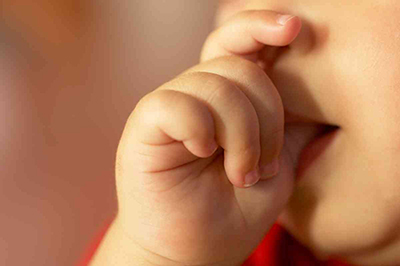
Sumber: www.brightsidedental.com
I’m sure all of you have seen children with bad teeth. The front teeth are stained black, and some are chipped beyond any resemblance of normal teeth. Some parents brushed this situation off by saying their children’s teeth ‘are already decayed to begin with or ‘never mind them doc, those are merely milk teeth.’
Actually, unless there was disruption of the teeth growth process (such as amelogenesis or dentinogenesis imperfecta), all our teeth initially grow normally. However, after the teeth have formed in the mouth, they start to be exposed to the low pH environment of the mouth, comprising of saliva, germs, bits of food residue etc.
In Malaysia, based on the study conducted in 2007, as many as 74.5% of children aged 6 years experience tooth caries. Worse still, more than one quarter of children aged 5 have more than 10 milk teeth with caries! This discovery clearly requires the need for prevention and reduction of tooth caries among children.
Why are milk teeth important for the children’s well-being?
- To enable the child to eat normally, taking the essential nutrients for growth.
- To help the child learn to speak properly. The absence of teeth will probably make the child speak improperly and delay the learning process of pronouncing some letters correctly.
- Help the facial muscles and bones grow proportionately.
- To prepare a sufficient ‘template’ and place for the permanent teeth to grow in the correct position.
- To give a more attractive appearance. Therefore, healthy milk teeth helps the psychological development of the child.
Caries formation
In short, caries form due to the digestion of sugar in the food by germs in saliva. This causes acid to form and erode the teeth. Due to the presence of germs in this process, tooth caries has been identified as a communicable disease.
There are a few factors that increase the risk of tooth caries among children, including:
- Unhealthy diet especially with sugary food and drinks intake.
- Bottle-feeding. Especially if the child is given sugary drinks in the nursing bottle and left to sleep with his bottle in the mouth throughout the night.
- Low socioeconomic and education status of the parents or guardian is related to the increase of children tooth caries due to low awareness of oral hygiene.
- Mutant Streptococci (MS) germs. These bacteria are among the germs responsible to tooth caries formation. At birth, no MS germs are found in the mouth. However, saliva-transfer from the parents (e.g: while sharing food, spoon etc) leads to children infected by MS.
- Plaque contain millions of germs causing caries. Children who don’t brush their teeth are found to have more oral plaque and severe tooth caries.
What could happen if tooth caries is not treated ?
The most obvious outcome would be toothache. The child would cry and suffer in pain, especially at night. In case it is not treated immediately, caries can aggravate until it develops pus and cause facial swelling (cellulitis). At this stage, the child may be admitted to a ward to be given intravenous antibiotic to avoid spread of germs to other parts of the body.
Early signs of tooth caries in children
As parents or guardians, you are the one spending most time with your children. So, you are actually the person who plays the important role of being the first one to detect tooth caries formation in its early stage. You only have to lift your child’s lip like the one in the picture and check the upper and front part of the teeth.
In the early stages, tooth caries in children appears as whitish spots on the teeth surface, which usually begin on the upper front teeth. Later on, it can turn to yellowish, brown or black. Initially, it only affects the upper front teeth, followed by other teeth. If it is left untreated, the spots can penetrate to the innermost layer of the teeth, and breaks, making the teeth look rotten.
Child teeth caries treatment:
- As the well-known saying goes, “You can make a difference”. Healthy teeth begins at home. Limit or reduce your children’s snacks and sugary drinks. In return, substitute them with a healthier menu such as fruits.
- Control the caries formation. In this process, the dentist will advise you the steps to be taken to reduce the risk of tooth caries in your children. For example:
- Avoid allowing your child to spend the whole night sleeping with a milk bottle in his mouth.
- Do not give sugary drinks to your child in a milk bottle.
- Brush your child’s teeth with fluoride toothpaste.
- Stabilise the pre-existing caries. Teeth with cavities and caries will be cleaned with a spoon excavator (a manual tool shaped like a small spoon) and patched with a suitable filling, e.g: glass ionomer cement (GIC). One of the advantages of GIC is its ability to release fluoride. After the caries is stabilised, it will not spread thus pre-empting a worse outcome.
- Extraction. An unsalvageable tooth, for example, a tooth with pus will have to be extracted. Small children will usually be difficult to work with in this case. Early extraction may cause the teeth arrangement and the jaw to grow disproportionately in the future.
Dr. Husna Razak (BDS) (KLE VK) is a dental officer who is currently working in Kelantan. Gt to know her more in The Team page.
[This article belongs to The Malaysian Medical Gazette. Any republication (online or offline) without written permission from The Malaysian Medical Gazette is prohibited.]
